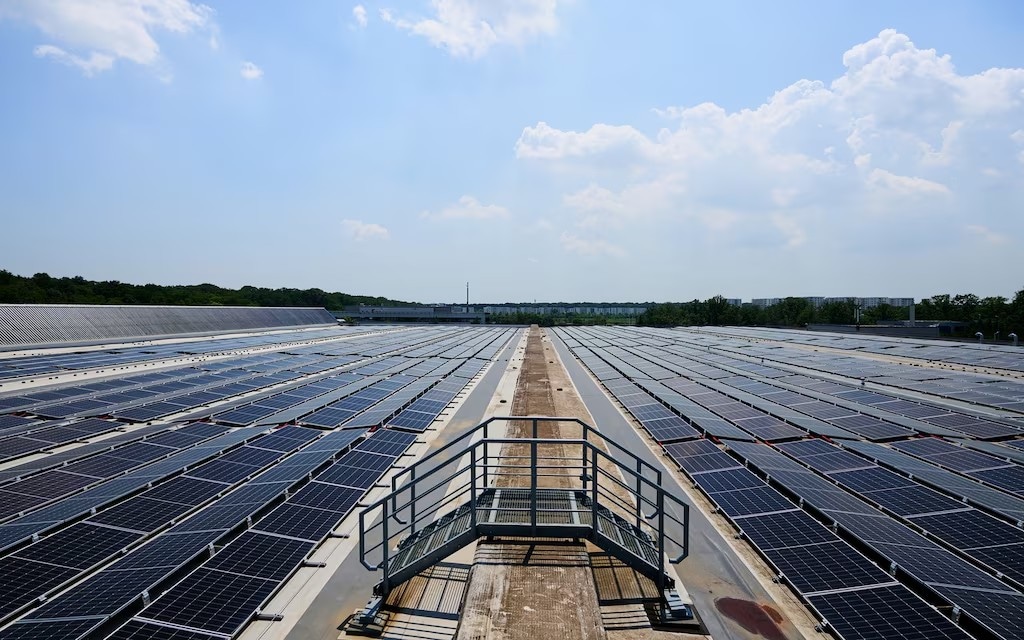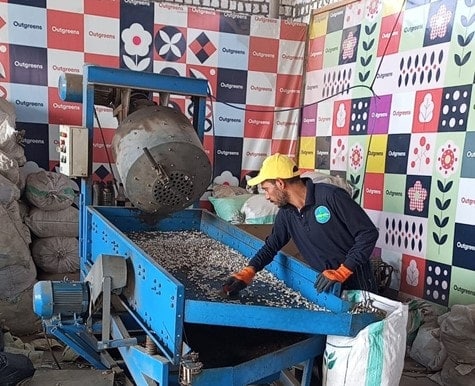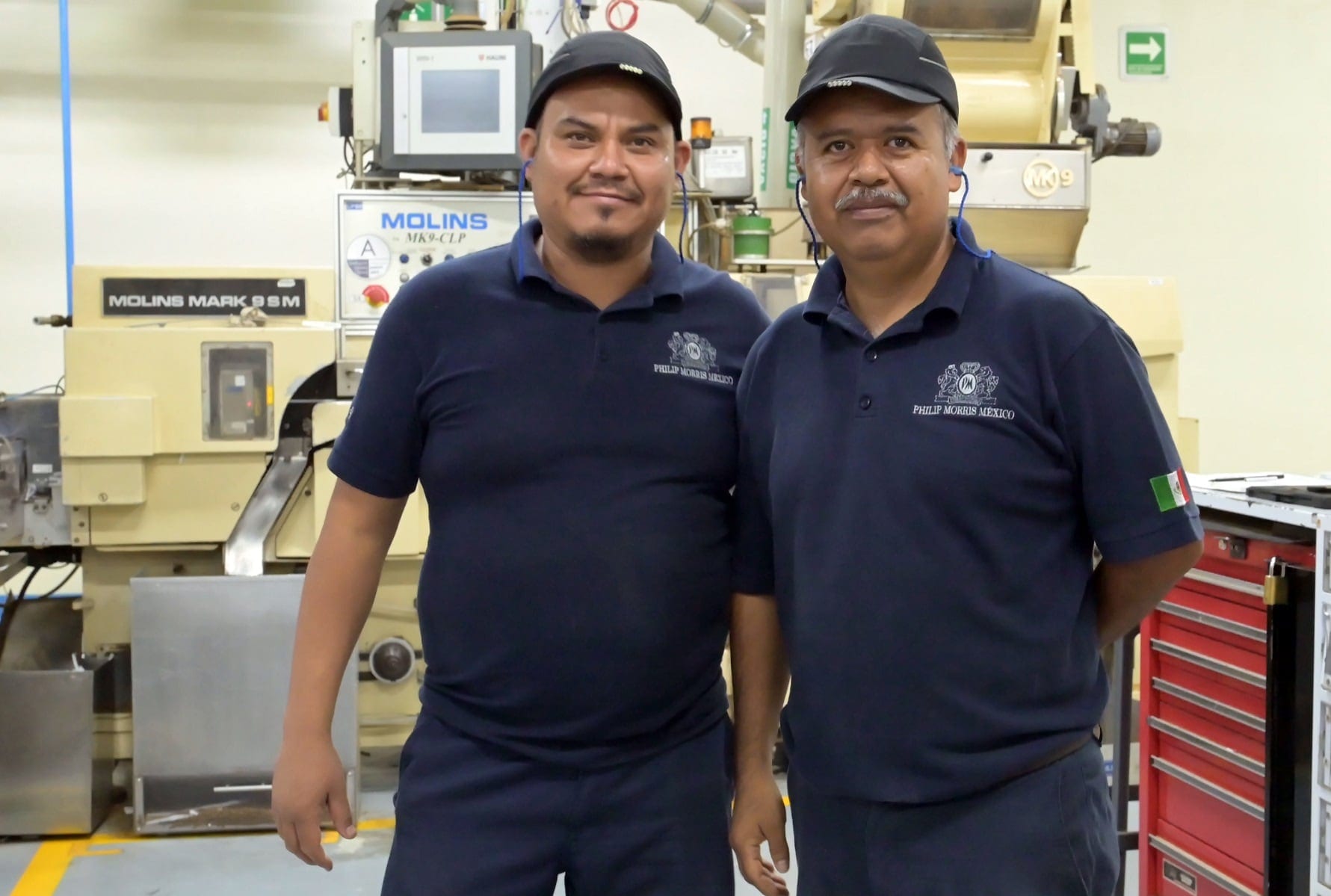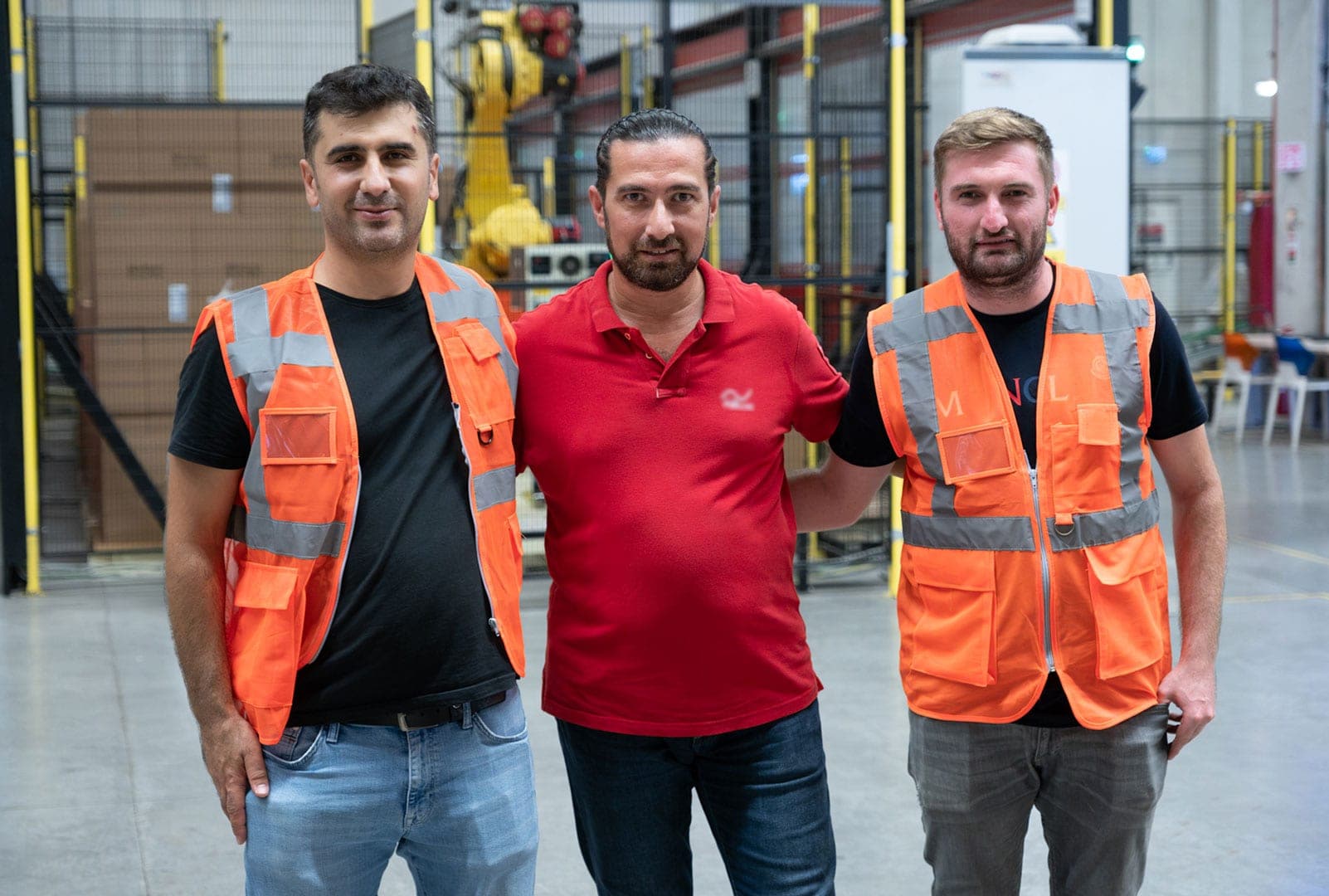To deliver on its climate ambitions, Philip Morris International calculates its greenhouse gas (GHG) emission footprint annually, following guidance from the Greenhouse Gas Protocol, and adopts a three-pronged approach, of:
a) reducing absolute GHG emissions and improving energy performance
b) switching to renewable energy where possible
c) compensating for the remaining unavoidable emissions by purchasing certified carbon credits
In the context of decarbonizing PMI factories, two programs play a key role:
- Drive 4 Zero (D40), which focuses on operational efficiency and emissions reduction across manufacturing and fleet
- Zero Carbon Tech (ZCT), which promotes the adoption of advanced technologies and renewable energy sources
These strategic efforts and comprehensive programs have led to a significant milestone: Philip Morris Romania has successfully achieved carbon neutrality in its direct operations, including both its Otopeni production facility and its commercial operations, as part of a broader initiative involving 21 PMI factories worldwide.
Transforming tobacco production: A move towards sustainability
The Philip Morris Romania factory in Otopeni is one of the three factories in Europe that manufactures heated tobacco products. Since 2017, it has been transitioning from a cigarette production unit to one that manufactures tobacco consumables for PMI’s innovative, non-combustible alternatives. During the re-technologization of the Otopeni factory, Philip Morris Romania has prioritized minimizing environmental impact by making significant efforts to reduce carbon emissions.
Aligned with PMI global strategy, the team in Otopeni has implemented a three-step approach at the Romanian factory: Reduce, switch, and compensate. They have reduced energy consumption and optimized efficiency to lower GHG emissions. Additionally, minimizing the use of fossil fuels and prioritizing the switch to renewable energy has become essential. Since some emissions are inevitable, they have to be compensated by purchasing high-quality carbon credits.
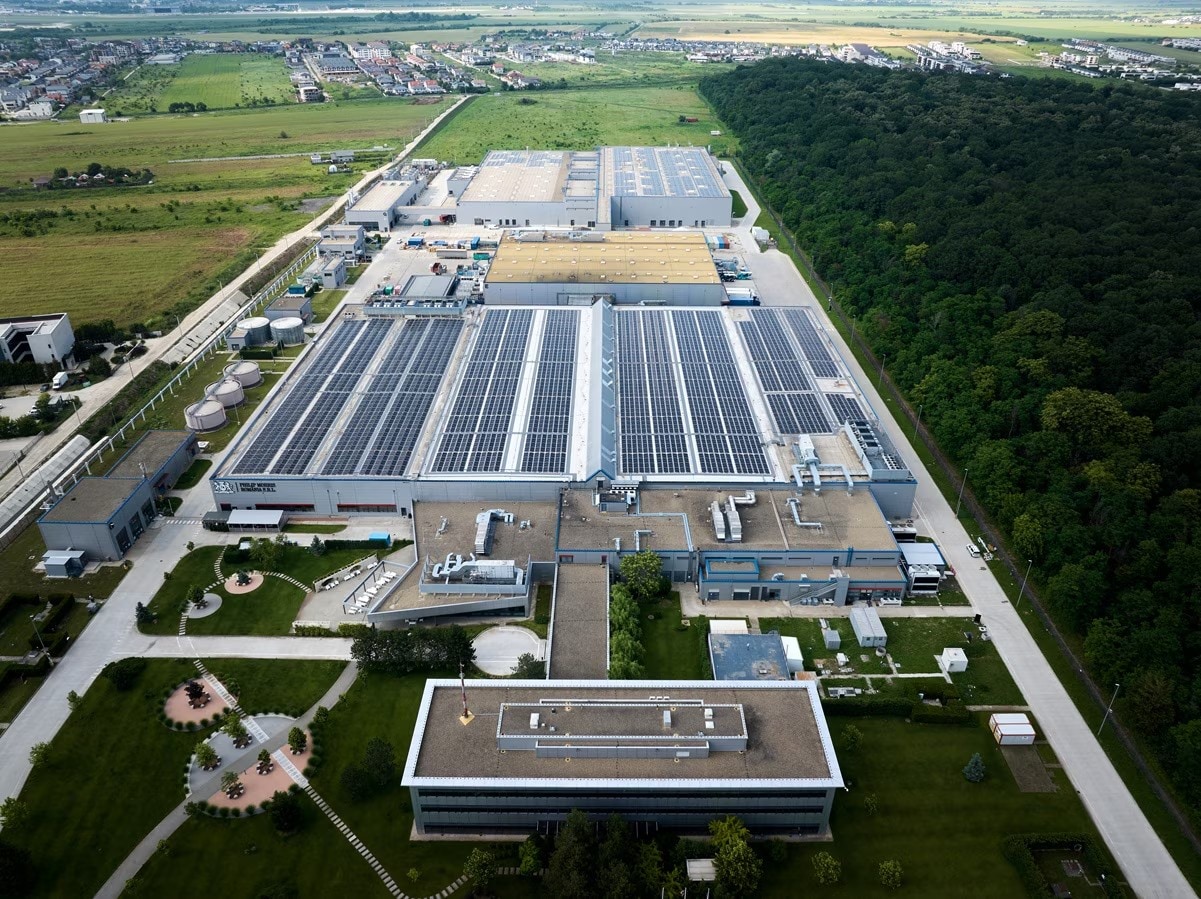
Image: Aerial view of the solar panels on the factory rooftop
From plans to implementation
To reduce emissions, the Drive for Zero (D40) program was implemented. D40 serves as PMI’s global framework for reducing emissions across manufacturing. It fosters a zero-loss mindset, empowering employees to identify and implement improvements. Workers in operations are vigilant about points in processes where energy, water, or materials are being lost. They are encouraged to propose and implement solutions to enhance efficiency, not only in factories but throughout the company. D40 is an initiative that motivates workers, suppliers, farmers, and new employees at all levels to engage in sustainable actions aligned with PMI’s climate action goals.
Switching refers to harnessing green energy and alternatives that reduce CO2 emissions as much as possible. The Sustainable Fleet and Zero Carbon Tech programs are two of the most important measures taken by the company within the frame of this step.
The Sustainable Fleet program is a global initiative that has been implemented locally since 2021. Its goal is to replace the company’s vehicles used by sales teams, executives, and employees with less polluting alternatives. Initially, these vehicles were equipped with diesel and gasoline combustion engines. The Fleet Center of Excellence (CoE) sustainability program rollout began in 2021 in Romania, with 44 percent of the combustion engine vehicles being replaced by hybrids. By the end of 2025, 98 percent of Philip Morris Romania’s vehicles will be hybrid or electric.
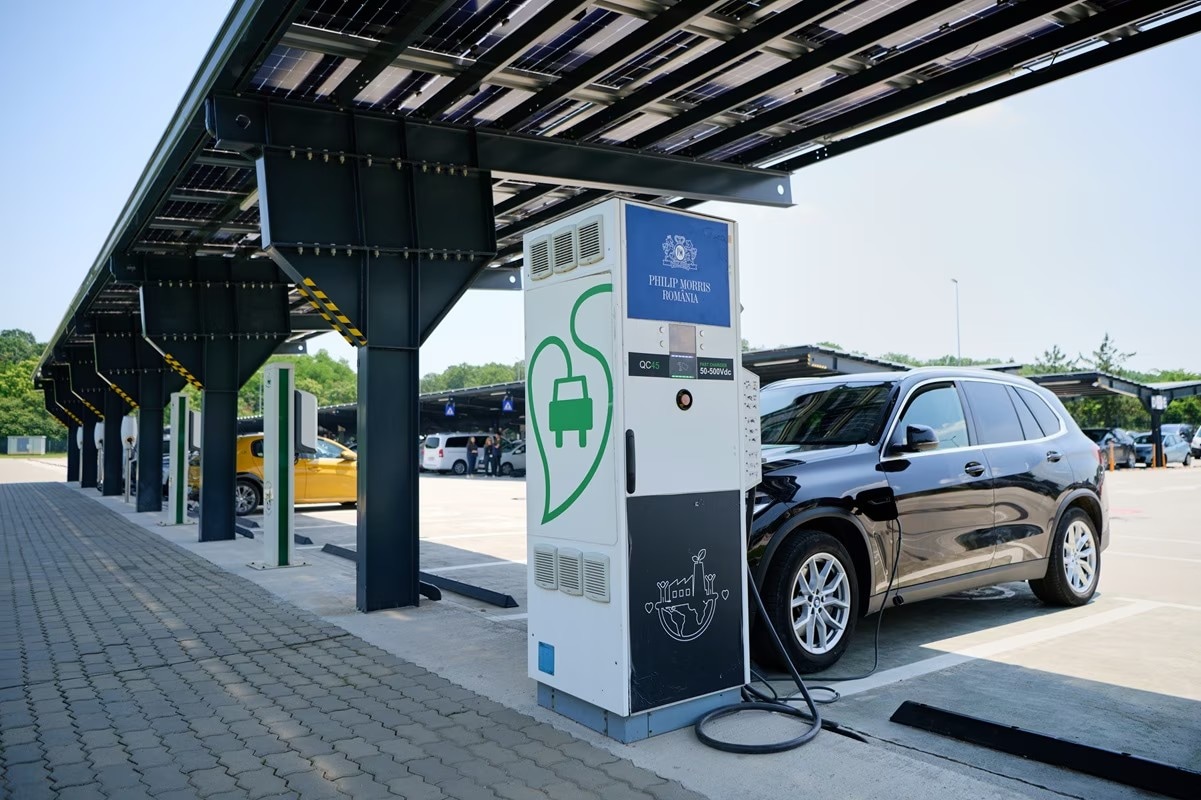
Image: EV charging station under the solar-powered parking roof at the factory
The cornerstone of the initiatives to harness green energy in the factory is the Zero Carbon Tech program, which started in 2016–2017, coinciding with the beginning of the factory’s transformation,” said Mohamad Taleb, Manager Initiatives, PMI Operations. “It began with an evaluation designed to pinpoint activities aimed at boosting energy efficiency, followed by specialized studies and feasibility assessments for the proposed solutions. The second step involved implementing utility metering (electricity, gas, compressed air, steam) at three levels: Zero (general consumption), one (buildings), and two (large consumers). The third step involved implementing a set of solutions designed to reduce the carbon footprint, specifically solar panels for self-consumption, an electric boiler, and two heat pump systems.”
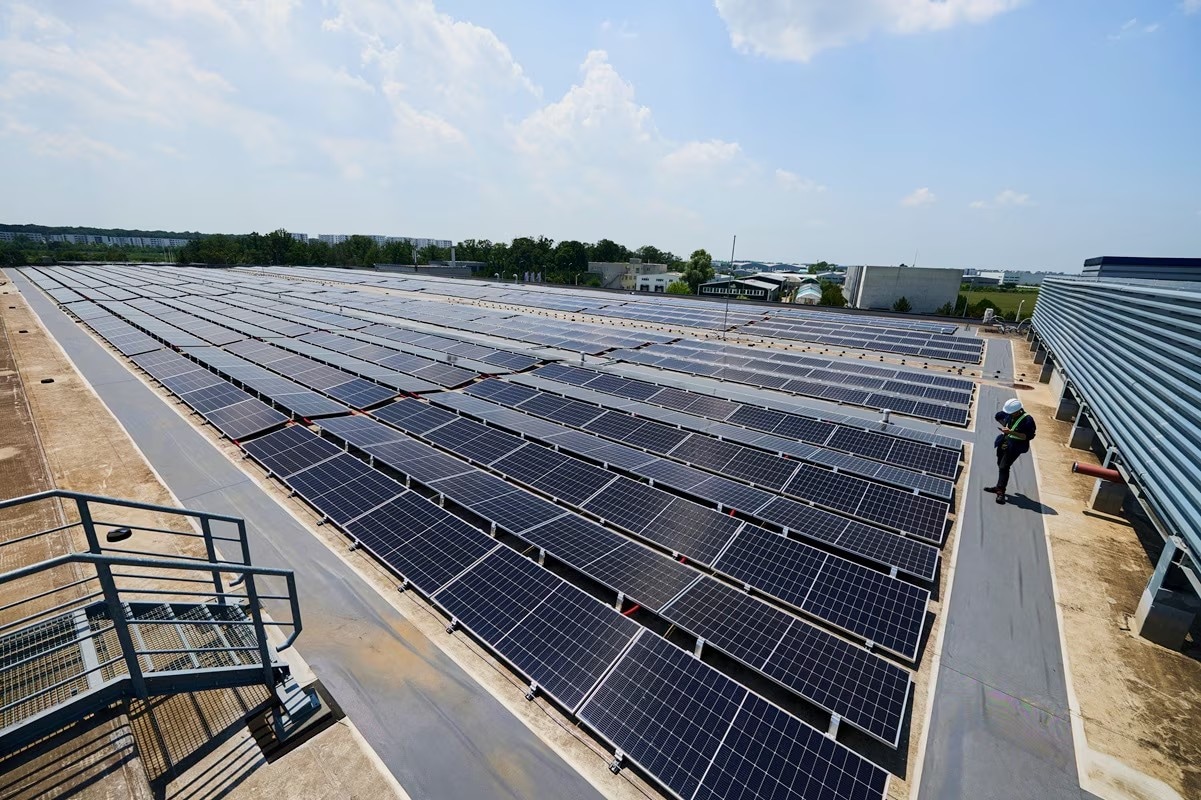
Image: Solar panels installed on the rooftop of the Philip Morris Romania factory
“[ENGIE is] glad to support our partner, Philip Morris Romania, in their decarbonization efforts, and we thank them for choosing us to be part of their journey towards a greener future,” said Denisa Voiculescu, Director of Business Clients Sales Division at ENGIE Romania. “As part of their sustainability actions aimed at reducing their carbon footprint, during the first phase of the project, we built at the Philip Morris Romania headquarters one of the largest car parks with bifacial solar panels in Romania, with an installed capacity of 478.64 kWp. We also developed the necessary infrastructure for charging electric vehicles. The second phase of the project involved installing a solar power plant covering over 15,000 m², with an installed capacity of 2,989 kWp. As a result, the total installed capacity from both phases reaches 3,467 kWp. Through this project, ENGIE Romania is supporting Philip Morris Romania’s efforts to lower their carbon emissions, with an estimated green energy production of over 4.111 MWh per year.”
The renewable energy produced by the solar panels will power the 3.0 MW electric boiler— the largest of its kind in Romania—used to produce “technological steam.”
When it comes to compensating for the remaining unavoidable emissions of the Philip Morris Romania factory, Philip Morris International invests in high-quality carbon credits through the climate investment portfolio, supporting internationally certified projects that promote reforestation, renewable energy, and sustainable agricultural practices. These initiatives not only help offset emissions but also contribute to the preservation of biodiversity, improve the livelihoods of local communities, and encourage innovation in green technologies, aligning the company’s efforts with global sustainability goals and the fight against climate change.
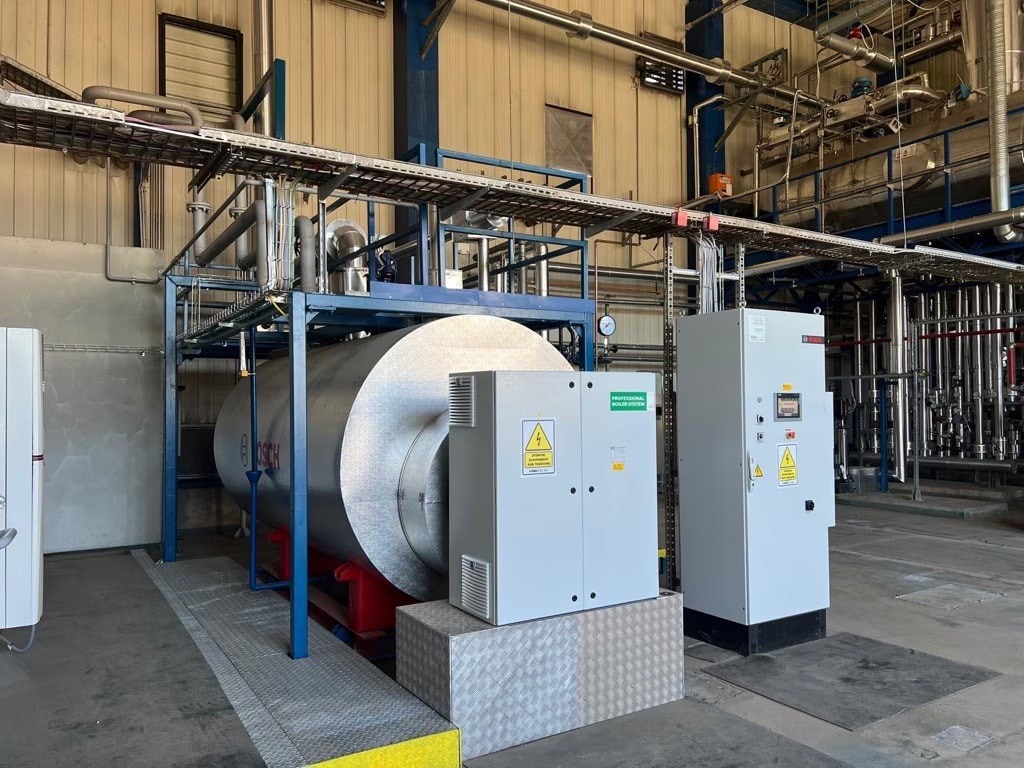
Image: The electric boiler is powered by the green energy produced by the solar panels.
Carbon cuts: The impact unveiled
“It’s been eight years since we embarked on our journey to achieve carbon neutrality in direct operations in Romania,” said Corina Vasile, Manager Manufacturing Sustainability at the Philip Morris Romania factory. “Each measure and initiative bring us closer to this goal. Initiating the factory audit allowed us to create a detailed, real-time map of major energy consumers throughout our operations. Using this map, we developed a list of initiatives to enhance energy efficiency and reduce our carbon footprint, and we implemented separate energy KPIs for the production areas.”
The positive effects of these initiatives are already noticeable. PMI’s Sustainable Fleet program has successfully reduced CO2 emissions by transitioning Philip Morris Romania’s vehicles to hybrid and electric models. Emissions have dropped from an average of 185 g/km in 2020 to 99 g/km in 2024. Additionally, this shift has enhanced the parking facilities, increasing the number of charging stations for electric cars.
In 2024, the factory’s CO2 emissions from natural gas combustion were 15.9 kT. To put this into perspective, 7.3 kT of CO2 emissions is equivalent to the emissions from 4,211 vehicles traveling 50 km every day for a year1. Besides generating green energy, the solar panels in the Otopeni factory’s parking area provide shade for parked vehicles, which lowers fuel and energy consumption during hot summer days. This also leads to a reduction in GHG emissions from the vehicles.
These achievements have also provided valuable lessons. It’s clear that reducing the CO2 emissions demands a multifaceted strategy. The intricate nature of the infrastructure requires specialized tools and companies to identify areas for improvement. Finding solutions and potential suppliers is challenging, as it involves keeping up with the latest market technologies and expertise. Moreover, sourcing specialized resources both locally and globally adds to the complexity. Therefore, it is essential to choose designs and solutions with great attention to detail and high reliability to minimize any negative impact on the technological process.
“The initiatives related to GHG emissions we’ve implemented at our factory are not just steps toward a more sustainable and responsible business model; they are also investments aimed at reducing the impact on the environment,” said Corina Vasile, Manager Manufacturing Sustainability at Philip Morris Romania. “By embracing innovative practices and technologies, we are committed to creating long-term value for us and the communities around us.”
Sustainability as a strategic imperative
The journey of Philip Morris Romania toward carbon neutrality is more than an environmental milestone—it is a testament to how sustainability can serve as a powerful engine for business resilience and long-term value creation. By investing in renewable energy, optimizing operations, and embracing innovation, PMI is not only reducing its environmental footprint but also future-proofing its business against regulatory, economic, and societal shifts.
These efforts enhance operational efficiency, strengthen stakeholder trust, and position the company as a forward-thinking leader in a rapidly evolving industry. As the challenges of climate change intensify, PMI’s proactive approach demonstrates that sustainability is not a cost, but a catalyst for enduring success and, in our vision, creating lasting positive impact for businesses, society and the planet.
Disclaimer: This market story should be read in conjunction with Integrated Report 2024 and the 2024 FY actuals for selected EHS data:

